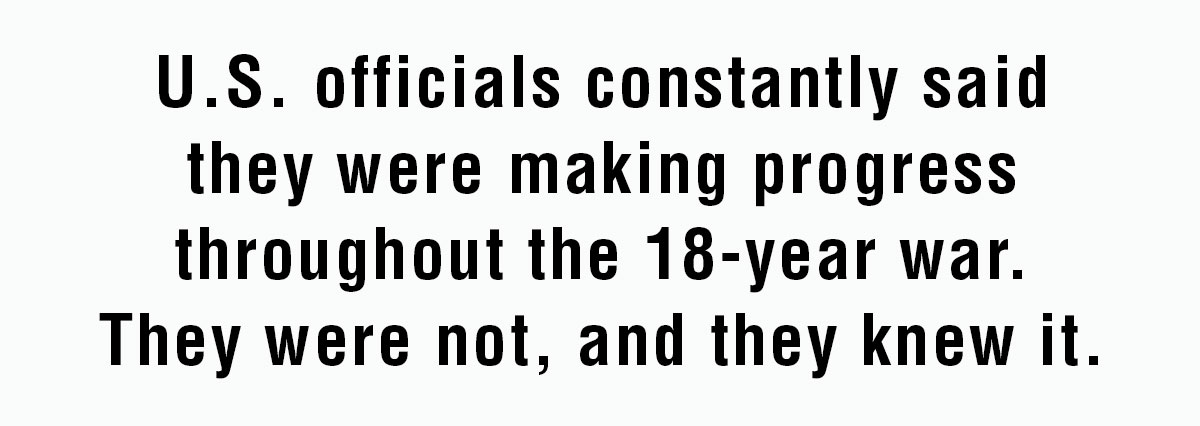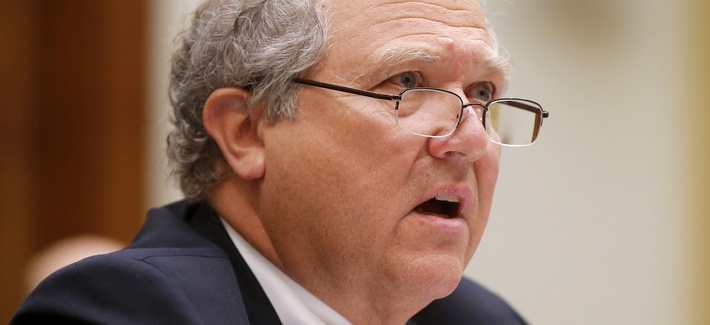
Para Company M.Cpl. Guillaume Ouellet, 30, of Lav Beaubort, Que., stands next to a discarded Soviet armoured personnel carrier outside Kabul as Afghan authorities conduct searches at a checkpoint set up by members of the 3rd Battalion, Royal 22nd Regiment Battle Group, on Sunday, April 25, 2004. [CP/Stephen Thorne]
The 6,200-word story by investigative reporter Craig Whitlock comes after three years of court battles between the newspaper and the U.S. government, including two federal lawsuits.
The 2,000 pages of records document government interviews conducted between 2014 and 2018 with 428 insiders who had direct roles in the war. In them, generals, diplomats, aid workers, Afghan officials and others speak bluntly about failures in Afghanistan.
The bottom line: U.S. officials constantly said they were making progress throughout the 18-year war. They were not, and they knew it.

“We didn’t have the foggiest notion of what we were undertaking,” Douglas Lute, a three-star army general who served under two administrations as the White House Afghan war czar, told government interviewers in 2015. “If the American people knew the magnitude of this dysfunction…2,400 lives lost.”
The document should give Canadian decision-makers pause the next time they consider joining a United States-led war overseas, even if it receives endorsements from the United Nations or the North Atlantic Treaty Organization.
According to those interviewed, the U.S. government outright lied to the American people and, by implication, its NATO allies—Canada included.
“Every data point was altered to present the best picture possible,” Bob Crowley, an army colonel who served as a senior counterinsurgency adviser to U.S. military commanders in 2013 and 2014, told government interviewers. “Surveys, for instance, were totally unreliable but reinforced that everything we were doing was right and we became a self-licking ice cream cone.”

John Sopko, the Special Inspector General for Afghanistan Reconstruction, said “the American people have constantly been lied to.” [Associated Press]
The interviews are the byproduct of a project led by Sopko’s agency, the Special Inspector General for Afghanistan Reconstruction. The agency was created by Congress in 2008 to investigate waste and fraud in the war zone.
At Sopko’s direction, the agency departed from its usual audits in 2014 and launched a side venture. Titled Lessons Learned, the $11-million project was meant to diagnose policy failures in Afghanistan so the United States would not repeat its mistakes.
It produced seven reports since 2016, but many of the criticisms were left out. The Post sought, and acquired, the interviews themselves, which proved more revealing than the reports.
Canada joined the war in Afghanistan immediately after the al-Qaida terrorist attacks of 9/11, in which more than two dozen Canadians and 2,977 Americans died. Over 13 years of fighting, it sent more than 40,000 troops to Afghanistan, which harboured the terrorist group.
One hundred and fifty-eight Canadian soldiers and seven Canadian civilians were killed and more than 2,000 were wounded before Canada withdrew in 2014. Total deaths on both sides, military and civilian, in Afghanistan since 2001 are believed to exceed 157,000.

Canadian Scott Gilmore worked in Afghanistan as a diplomat, consultant and non-government organization worker on and off for about 12 years, starting a few months after the fall of the Taliban.
“When I first arrived in Kabul, I travelled in local taxis and when I couldn’t find one of those, I walked,” he wrote in Maclean’s Magazine. “Every year after saw the situation deteriorate. By my last trip, I was only moving in armored convoys, and slept in what was essentially a bunker.
“Everyone knew we were losing. But we were all chained to our various projects, and strategic plans and annual budgets—and all of those were predicated on the assumption that things would turn around. They didn’t.”
The U.S. has deployed more than 775,000 troops to the country, some more than once, and it has spent almost US$1 trillion on the war and reconstruction efforts. Canada spent about C$18 billion in Afghanistan. Currently, 13,000 U.S. troops remain.

Canadian troops head out of Kabul on an armoured patrol. [Stephen J. Thorne]
The interviews also highlight botched attempts to curtail runaway corruption, build a competent Afghan army and police force, and put a dent in Afghanistan’s thriving opium trade, which now comprises 82 per cent of the opium worldwide.
“Several of those interviewed described explicit and sustained efforts by the U.S. government to deliberately mislead the public,” said the Post report. “They said it was common at military headquarters in Kabul—and at the White House—to distort statistics to make it appear the United States was winning the war when that was not the case.
“The Lessons Learned interviews contain numerous admissions that the government routinely touted statistics that officials knew were distorted, spurious or downright false.”
Some other key points from the interviews:
- The stabilization strategy and the programs used to achieve it were not properly tailored, and successes in stabilizing Afghan districts rarely lasted longer than the physical presence of coalition troops and civilians.
- Promises to avoid so-called “nation-building” failed miserably. Democracy, for one, was a foreign concept to a society built on tribalism, monarchy, communism and Islamic law.
- The country was flooded with far more aid than it could possibly absorb—90 per cent overkill, said one official. Coalition spending on schools, bridges, canals and other civil-works projects amounted to a colossal misjudgment, akin to “pumping kerosene on a dying campfire just to keep the flame alive.”
- Americans, and presumably others, looked the other way as corruption thrived and allied Afghan power brokers “plundered with impunity.” A U.S. colonel said the Afghan government had devolved into a kleptocracy by 2006, undermining the NATO cause by eroding Afghans’ faith in the process.
- Afghan security forces were described as incompetent, unmotivated and rife with deserters. Afghan commanders pocketed coalition-paid salaries intended for tens of thousands of “ghost soldiers.” There was no confidence the Afghan army and police could by themselves fend off the Taliban.
- No single agency or country was in charge of the Afghan drug strategy, so agencies, departments, governments and the military butted heads constantly. “It was a dog’s breakfast with no chance of working,” a former senior British official told U.S. government interviewers.

Members of 3rd Battalion, Royal Canadian Regiment, patrol among ruins outside Kabul in 2003. [Stephen J. Thorne]
Unlike the Afghanistan interviews, however, the Pentagon Papers were based entirely on internal government documents such as diplomatic cables, decision-making memos and intelligence reports. The authors had been prohibited from interviewing anyone. The Lessons Learned project faced no such restrictions.
The agency actually interviewed some 600 subjects. The documents identify only 62; it blacks out 366 others, of whom the Post was able to identify 33. The newspaper is awaiting a court ruling on the rest.

About 30 of the interview records are transcribed, word-for-word accounts. The rest are typed summaries of conversations, some of which were conducted with NATO allies in London, Brussels and Berlin.
The Post story also draws on 59,000 pages of previously classified memos dictated by U.S. defence secretary Donald Rumsfeld between 2001 and 2006. Called “snowflakes” by Rumsfeld and his staff, they are said to foreshadow problems that would come to haunt the U.S. military and its political masters in later years.
“I may be impatient. In fact, I know I’m a bit impatient,” Rumsfeld wrote in one memo to several generals and senior aides. “We are never going to get the U.S. military out of Afghanistan unless we take care to see that there is something going on that will provide the stability that will be necessary for us to leave.
“Help!”
The memo was dated April 17, 2002—six months after the war began.
Advertisement





















